Ashton Kutcher Has Been Through It
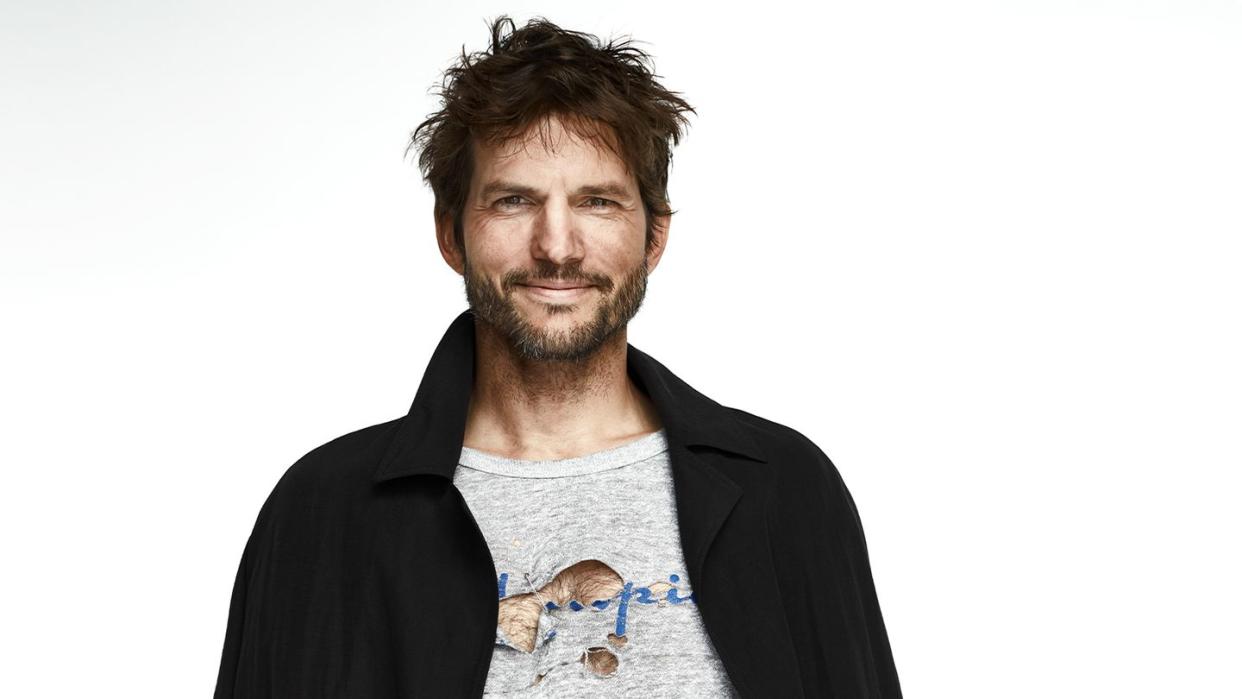
Ashton Kutcher is in pain. He’s been running for ten miles through the streets of Brooklyn, surrounded by thousands of people, and suddenly his body is sending him an emergency distress signal. Kutcher is battling his way through the New York City Marathon on an uncharacteristically humid late-fall morning. The high of 75 degrees is tied for the hottest November 6 on record in New York. But Kutcher isn’t focused on the weather. It shouldn’t be a factor anyway. He’s been prepping for this race all year in balmy Los Angeles, and he did a gnarly twenty-miler in Palm Springs in temps twenty-some degrees above this. None of that is on his mind at this moment. No, all Kutcher can think about right now is the stabbing pain in his side.
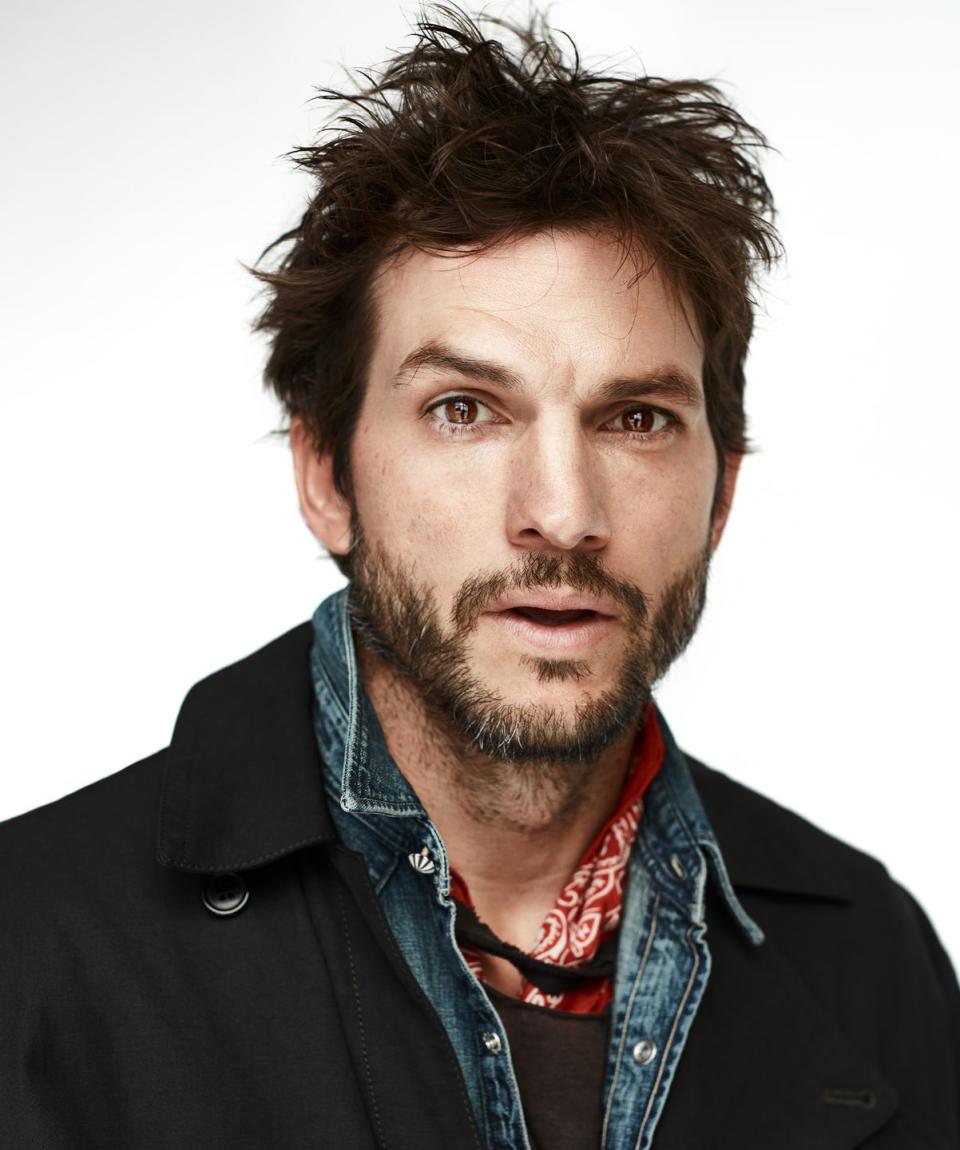
He’s got to do something. There are still more than sixteen miles to go to complete his first marathon ever. People are watching. Lots of them. There’s money on the line, too: He’s running in support of his nonprofit, Thorn. But Kutcher is also here on another mission. A private one. Three years after a sudden and severe autoimmune disorder knocked him flat on his back and into the hospital, he wants to make sure he isn’t just recovered but better than ever. Quitting is not an option.
Kutcher slows down. Breathes. In and out. Tells the friend who was pacing him to go on ahead without him. Slows down even more. Suddenly, he spies a group of Hasidic men running across the road. And then, Kutcher talks to God. “If you need me to have this side stitch to finish this race, then give me every ounce of pain you could possibly give me,” he says. He accepts this pain, promises to carry it across the finish line. Unless, of course, God can do something about it. “If you don’t need me to have it,” Kutcher adds, “take it away.”
Does God answer? That’s up to you to decide. But a remedy arrives almost immediately: A burp. A fart. The stitch is gone.
Two months later, back in Los Angeles, Kutcher is relishing the memory of that marathon moment. When something amuses Ashton Kutcher, it’s easy to tell. Big—no, huge—smile. Animated hands. Eyebrows raised and face wide open. He loves that his side stitch hurt so bad. That he didn’t stop. That he accepted. That God sent a fart to ease his burden.
He’s telling me the story over lunch at the Soho House in West Hollywood, not far from his Beverly Hills home. It’s pouring rain—the beginnings of an unnervingly wet January on the West Coast—and Kutcher is dressed casually. Black beanie, red flannel shirt, blue jeans, and a pair of black sneakers that look so fresh I refuse to believe they’ve ever been worn before. A half-demolished margherita pizza sits in front of him. He’s slender, more so than I expected. His stubble is flaked with gray.
Kutcher, forty-four, has been famous, extremely so, for a quarter century. But it’s been a while since audiences have seen him onscreen. Nine years since his last feature film, save for a brilliant performance in a supporting role last year in Vengeance, B.J. Novak’s directorial and screenwriting debut. And it’s been three since his last recurring TV role. Kutcher admits that the thought crossed his mind that, maybe, “I’m done.” Not that he would have announced any sort of retirement. He doesn’t get why anyone does. “You don’t have to tell anyone!” Kutcher says, by way of PSA to his peers. “Enough already.”
It’s for the best that he kept his retirement thoughts private—because Kutcher is back in a big way. He is starring opposite Reese Witherspoon in the romantic comedy Your Place or Mine, out February 10 on Netflix. And elsewhere on the platform, he’s currently going viral for reprising the role that first catapulted him into the public consciousness—Kelso on the sitcom That ’70s Show—in the first episode of the streamer’s well-received reboot, That ’90s Show.
While the roles he has chosen for his acting return are familiar, he’s approaching the work from a whole new vantage point. After an early career that saw him take on movie after sitcom after reality show—always grinding—and a decade-plus of frenzied tabloid attention, Kutcher is settled now. Free. He’s married to an old friend who became a life partner, and he’s enjoying fatherhood. Kutcher is very much financially independent, too, thanks in no small part to his wildly successful second career in venture-capital investing.
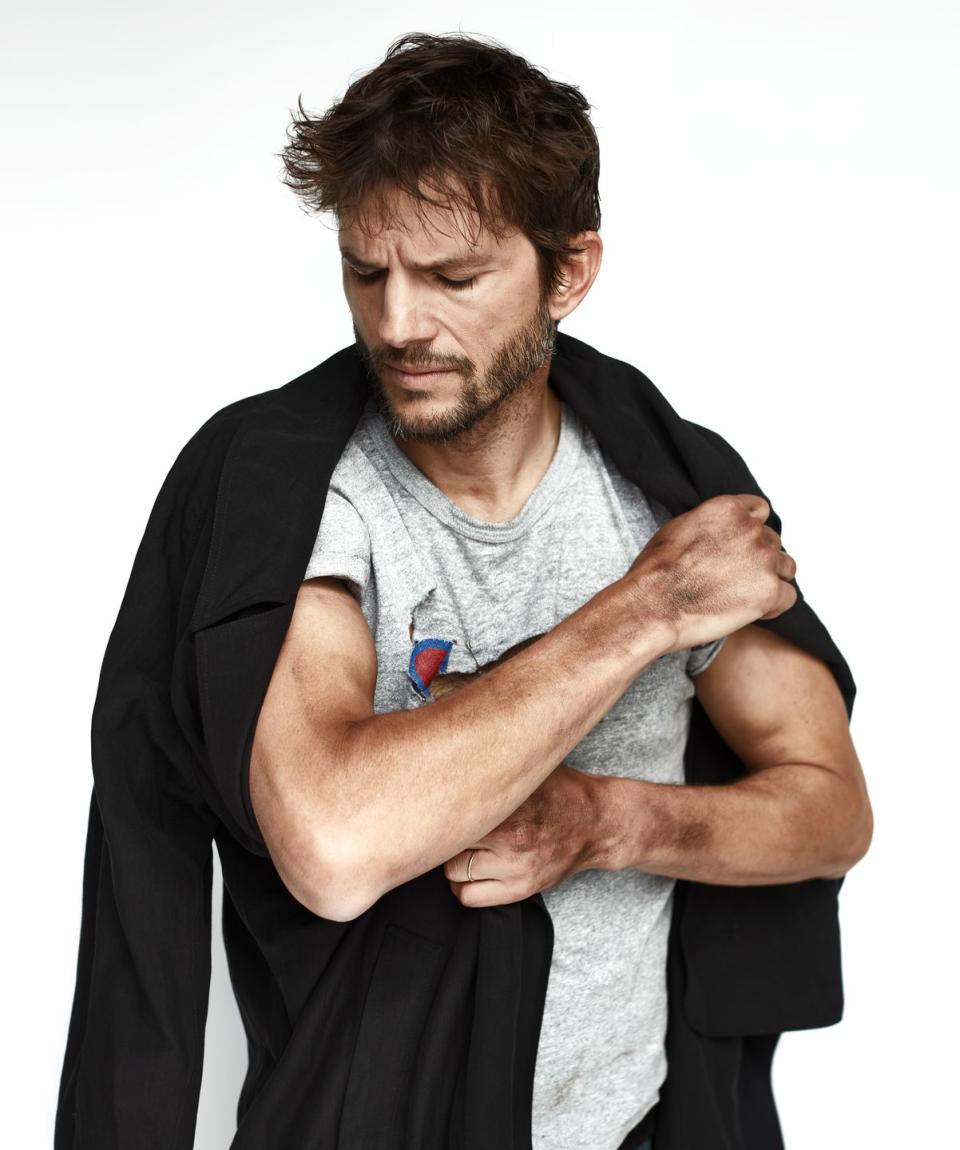
Over lunch, and in a follow-up conversation, Kutcher is reflective. The passage of time has given him new perspective on fame and fortune, including his past tabloid travails. His harrowing medical episode in 2019 has changed him, too. He’s ready to not just enjoy life but challenge it, and himself. Kutcher can afford to be picky, but that doesn’t mean that he’s lost that inner hustle. “Now I can just worry about playing roles that I want to play,” he says.
When he’s choosing companies to bet on, Kutcher says his slogan is “Invest in enduring happiness.” He’s applying that same mindset now to his acting. “I want to tell stories that say something,” he says. “I want to tell stories that deliver people joy. And I want to deliver stories that make people think. And I want to play characters that are fun to play. And I’m willing to work my ass off to do that.”
Twenty-six years ago, Ashton Kutcher made his way from Iowa to New York City with a hundred dollars in his pocket and not one single clue about what he was getting into. The first time he went to a club—any club, ever, at the now defunct Chaos on Broome and West Broadway in SoHo—he spied Prince sitting behind a velvet rope in a VIP area. But Kutcher had never seen a velvet VIP rope before and didn’t grasp that it was supposed to be a barrier. So he stepped right over it to say hi to one of his heroes. His killer opening line? “You’re from Minnesota, and I’m from Iowa.” Security helped escort him right back to his side of the rope.
Kutcher stands up from our table at lunch to reenact the scene. His long limbs swing dramatically over the imaginary rope, and he shakes my hand—I am playing the part of the Purple One—and recalls, with a sheepish grin, his equally memorable parting statement: “Go Vikings.”
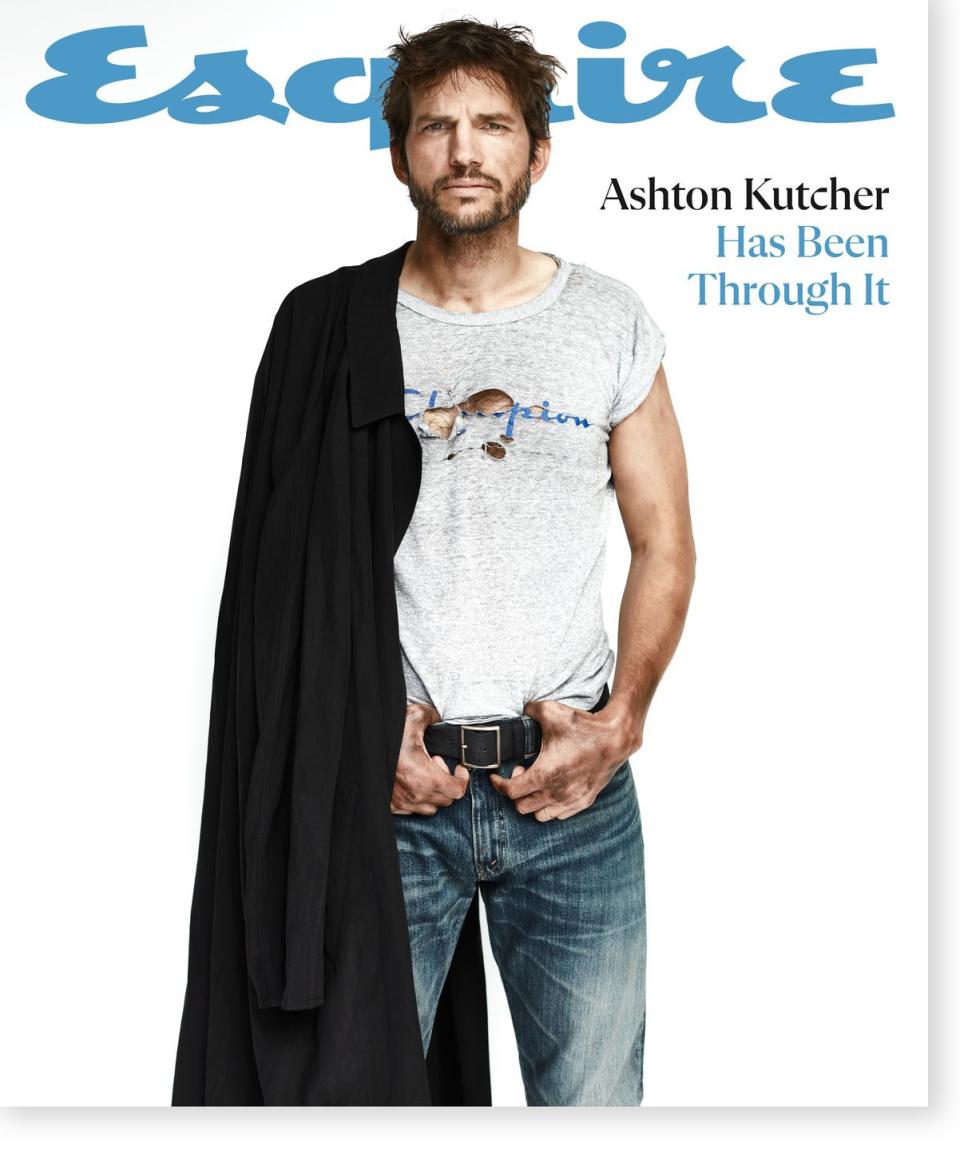
Want more stories like this? Become an Esquire subscriber today.
Subscribe
At the time, Kutcher was living in an overcrowded apartment with a bunch of other young models, barely getting by. “I was fucking broke,” he says, emphatically. Dad hadn’t approved of the move. He couldn’t believe that his son would give up a job at the local General Mills factory, where he also worked, not to mention forgo college. So Kutcher struggled silently. “I didn’t want anyone to tell me I had to go home,” he says.
The struggle didn’t last long. A year later, Kutcher took a forty-eight-hour trip to L.A. for two acting auditions. He got both parts and had to pick between the two pilots. Kutcher chose right. That ’70s Show debuted on August 23, 1998. The ditzy but lovable Kelso was barely a fifth lead (if there is such a thing), but the show made Kutcher a star.
But Kutcher wasn’t content just to ride his sitcom success. Instead, he piled projects on top of his day job. His first movie, Dude, Where’s My Car?, whose title would become an inescapable pop-culture idiom, arrived in December 2000. He had his first rom-com hit at the box office in 2003—Just Married, opposite “it girl” of the moment Brittany Murphy. And that same year, after starting his own production company, he came out with the landscape-altering Punk’d reality show, as well as The Butterfly Effect, a thriller and his first meaty, dramatic role. It was all, as they say, happening.
There is a name for the moment in a rising pop star’s career when things are going so well—every project isn’t just a hit but a total smash—that they can seemingly do no wrong in the eyes of the adoring public. It’s called the imperial phase. In 2003, Kutcher entered his. He had a No. 1 movie at the box office (Just Married), a top show on both cable (Punk’d) and broadcast (That ’70s Show), and an invitation to host Saturday Night Live. He even got the cover of Rolling Stone. He was twenty-five years old and having a ridiculous amount of fun.
But all empires have one thing in common—they end. And Kutcher had a problem: “I was an asshole,” he says.
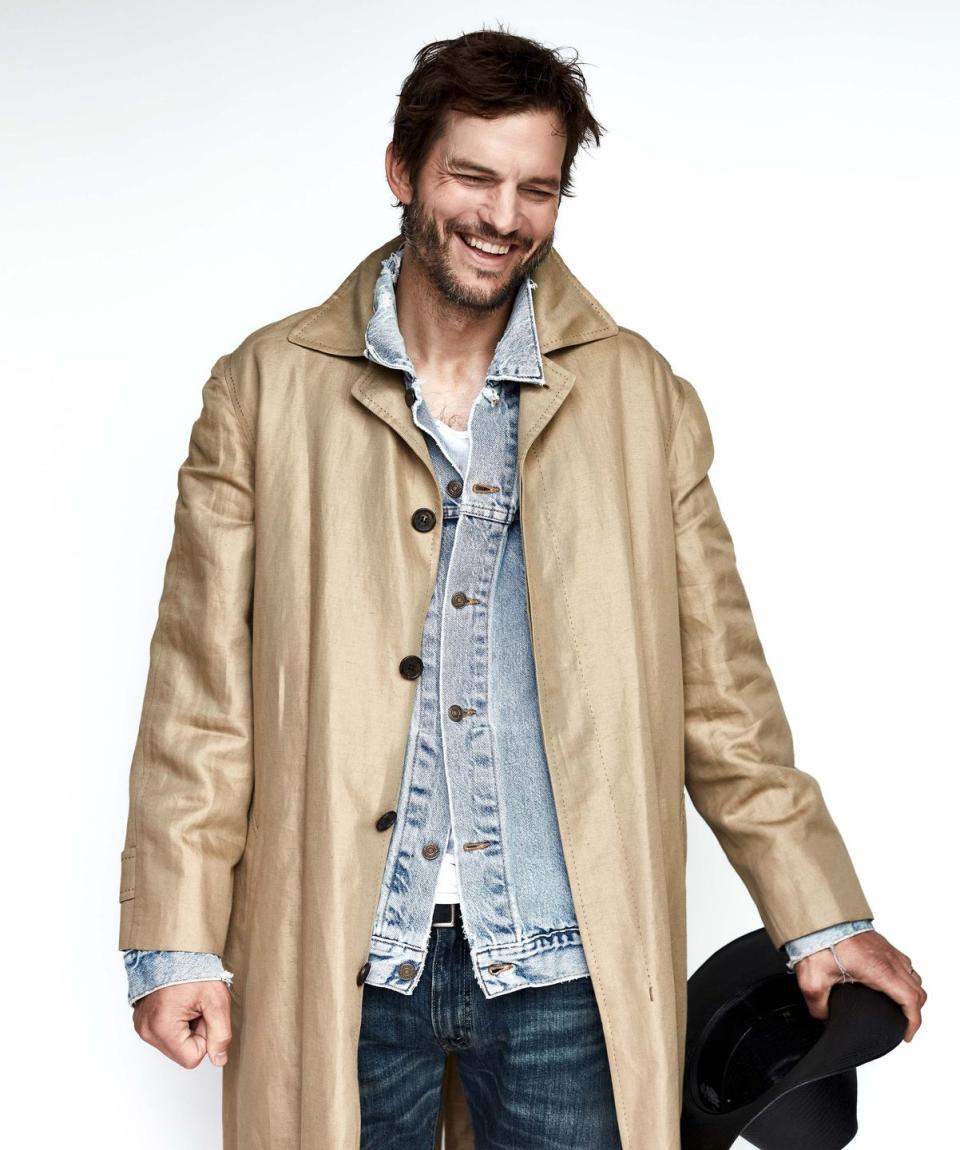
The actor began dating Demi Moore late that year. And suddenly he wasn’t just a star but an object of tabloid fascination. “The moment that information broke, my life changed,” Kutcher says. The curious duo—she, a forty-year-old mother of three, and he, a party boy fifteen years her junior—were on the cover of every gossip rag in the supermarket. Nascent “news” outlet TMZ followed them around town religiously. Foreshadowing the smartphone era, the sudden ubiquity of point-and-shoot digital cameras made things worse. Suddenly, everyone in every bar, restaurant, and club had a way of putting everyone else’s private moments on record, and there was no one’s private moments they wanted more than those of the Kutcher-Moores.
But Kutcher was also very much in love. After he and Moore married in 2005, Kutcher became a stepdad to three young girls. When Moore would go on location to film, Kutcher stayed home and took care of the kids. And as she has since revealed in her bombshell memoir, Moore was in a losing battle with her own sobriety; the actress began drinking for the first time in twenty years during their union. After suffering the loss of a late-term pregnancy, they also pursued IVF to try and conceive again for several years.
Kutcher didn’t help himself much during this time. With one of the first massively followed accounts on Twitter, he goaded the press, subtweeting their headlines and rumors and anonymous sources. Looking back, he says that doing so only invited them into his and his wife’s lives even more. “It’s stupid to complain about things that you’re contributing to,” he says.
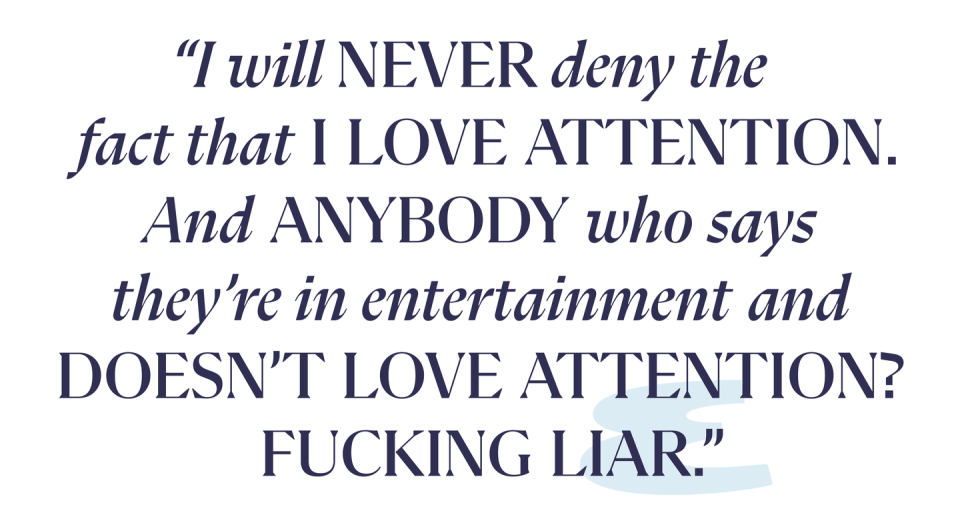
Still, it was a lot, I offer. He agrees. “I was twenty-six, bearing the responsibility of an eight-year-old, a ten-year-old, and a twelve-year-old,” he says. “That’s how some teen parents must experience their twenties.” Kutcher maintains a relationship with each of the girls, now women. They were awesome then and they’re awesome now. But everything together, he says, was definitely “a lot.”
Today Kutcher has two children with his wife, Mila Kunis. Do you think about that miscarriage differently now? Kutcher pauses. “Losing a kid that you think you’re going to have, and that close to thinking you’re going to have a kid, is really, really painful,” he begins. “Everyone deals with that in different ways.” He doesn’t say how he coped at the time.
“I love kids,” he continues. “I wouldn’t have gotten married to a woman that had three kids if I didn’t love kids. The idea of having another kid would have been incredible.” But Kutcher wouldn’t change what happened. He accepts that moment. “For whatever reason, I had to have that experience.”
Little by little, and then every now and then all at once, life brings you to your knees. And if Moore’s miscarriage had Kutcher wobbling, their 2011 separation flattened him. “Nothing makes you feel like a failure like divorce,” Kutcher says. “Divorce feels like a wholesale fucking failure. You failed at marriage.”
Kutcher’s reputation was also in tatters. His infidelity played out, with varying degrees of accuracy, on news sites and in common gossip everywhere. More than once, Kutcher says he found himself during that time at industry events, where he’d hear people—people he admired, people who knew what it was like to live publicly—talking shit about his breakup. “Can you believe what he fucking did?” It rang in his ears.
The experience sent him careening back to his teen years when, after he made the supremely dumb decision to break into his own high school, he was, literally, the talk of his small town. Kutcher got arrested and charged with third-degree burglary—a felony offense. His own scarlet letter. “Feeling it again at thirty-two is, oof. It’s humiliating and embarrassing.” And while Kutcher can admit now that it’s good to be humbled, there is absolutely no joy in recalling his and Moore’s split. The only appropriate response, instead, is to face reality. “You own the shit you did wrong, and you go forward.”
Acceptance, though, is hard. Takes a lot of work. “Fucking tons,” he answers.
There has always been a curious sense of inevitability when it comes to Ashton Kutcher’s career in Tinseltown. A sitcom standout with a movie-star face, he became a rom-com mainstay in the early aughts even though those rom-coms were rarely well-reviewed. Didn’t matter. Their box-office performance was another story. He’s played too dumb too frequently, something even he suggests. He embraced reality TV before reality TV was a thing. And it’s always worked out.
Not just anyone could do it, says That ’70s Show costar and longtime friend Wilmer Valderrama: “When you think of Ashton Kutcher, you 100 percent cannot compare him to anyone else. He built a lane for himself.”
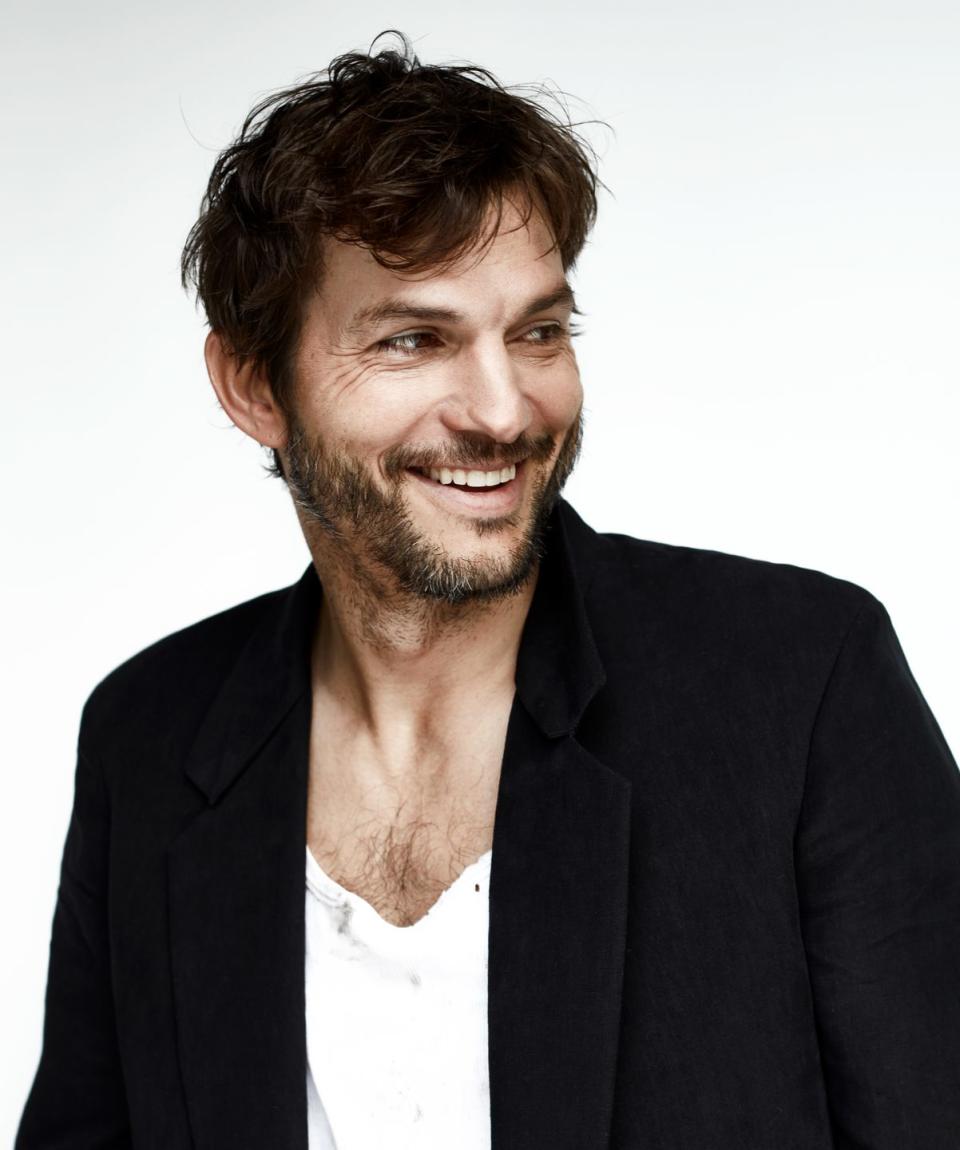
In our overstimulated-is-the-new-normal world of now, it’s not about just being a movie star or a silver-screen icon or an undeniable personality. It’s about being all of those things, everywhere, and all at once. But in 2003, headlining a reality show on which he would play pranks on unsuspecting famous people was, by all accounts, career suicide. “Everybody said, ‘That’s a really bad idea,’” Kutcher recalls, laughing. He did it anyway. Punk’d, which Kutcher created, produced, and led, was an outright phenomenon.
B.J. Novak, who logged his first on-camera role, pre–The Office, as the in-the-field prankster on the show’s second season, sets the scene for anyone who wasn’t watching MTV in real time: “It was like TikTok meets Netflix,” he says in terms of scale. “YouTube meets a billboard meets Ticketmaster.” And Kutcher was orchestrating it. “I don’t think I’ve seen a celebrity since who was as center-of-the-storm as Ashton Kutcher.”
Novak remembers his audition vividly. “I made my way to the final round of auditions,” he recalls. “And there’s Ashton Kutcher looking like a billion dollars—adjusted for inflation that’s ten billion dollars—with his trucker hat pulled low. He leans over and whispers an improv idea in my ear, and I remember thinking, Even if I don’t get this job, this is the coolest a person could be.”
Kutcher didn’t just love doing Punk’d then; he stands by it now. He’s proud of the spoofs they aired—and even more so of the ones they didn’t. “Any celebrity that asked us to destroy the tape, I destroyed the tape,” he says. “Every single fucking last one.”
Kutcher has often seemed, at least onscreen, to most enjoy (and be best suited to) productions in front of a live audience. That’s part of the reason he stuck around That ’70s Show for seven seasons. That love for immediate feedback from a crowd stretches back to Kutcher’s youth.
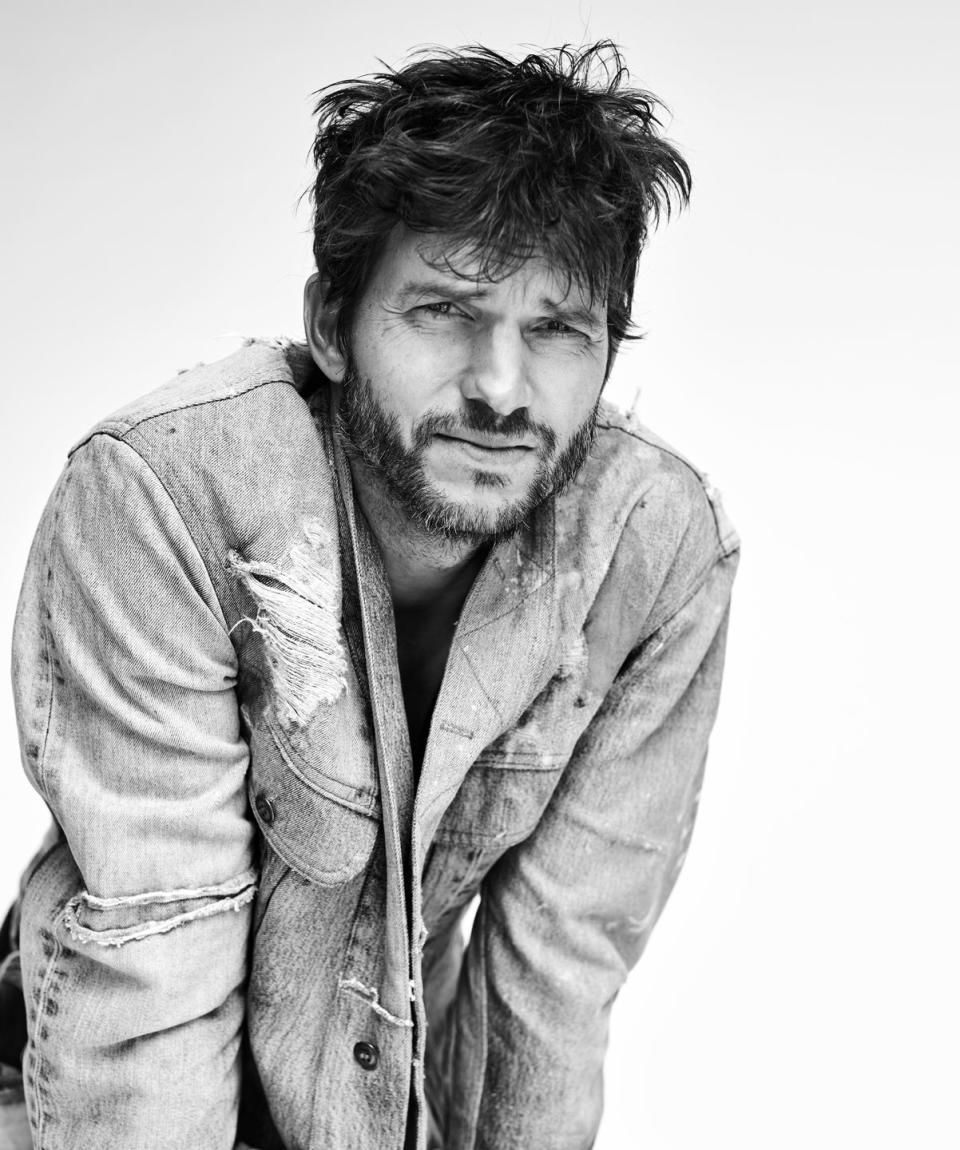
Born Christopher Ashton Kutcher in Cedar Rapids, Iowa, he grew up with his twin brother, Michael, and their older sister, Tausha. Kutcher often felt as though his two siblings earned the lion’s share of their parents’ attention. His brother, born with a mild form of cerebral palsy, had special medical needs; their older sister, a knack for getting into trouble. “I was doing everything I could to shine, shine, shine, shine, shine,” Kutcher recalls. And then he nabbed a role in his first play, in middle school, playing the thief in The Crying Princess and the Golden Goose. He got onstage and heard a sound he’s been addicted to ever since: laughter. “I was like, ‘This is it. This is the juice.’”
He wanted more. Still does. “I will never deny the fact that I love attention,” he says. “And anybody who says they’re in entertainment and doesn’t love attention? Fucking liar.”
There is one exception—one gig at which Kutcher got to strut on stage and hear a regular chorus of giggles that didn’t bring him joy. In 2011, Kutcher became the highest-paid actor on television when he took over for the scandal-embattled Charlie Sheen on Two and a Half Men. “Financially, it was a wonderful idea,” Kutcher says. Career-wise, maybe not. The script he worked from, he says now, wasn’t the script he was pitched. Plus, his four-season run stretched across the height of his split with Moore. Then there was the added layer of Sheen trashing him in the press.
Was anyone throwing up the warning sign when you were considering taking that? No, he says. “Very few people want to tell you something is a bad idea when they’re financially incentivized not to.”
A decade removed from the experience, Kutcher respects the role the show played in his life. Between that run and the takeoff of A-Grade Investments, the venture-capital firm he founded in 2010 alongside super manager Guy Oseary, Kutcher never needs to book a role for a paycheck again. “That’s not part of my equation anymore,” he says simply. His investments in tech companies like Airbnb and Uber have been hugely profitable. (Kutcher is now a general partner at Sound Ventures, a successor fund to A-Grade.)
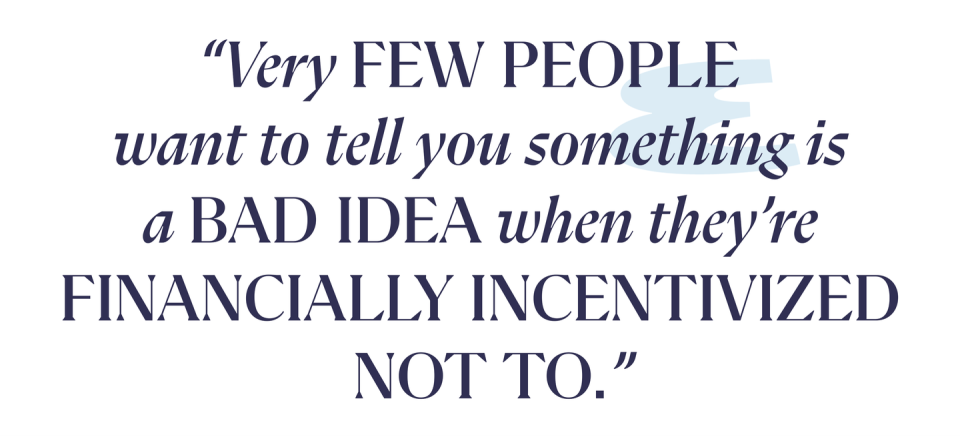
So, okay, you’re fabulously wealthy, you’ve got a great wife, two adorable kids, a fulfilling career in finance, and a house—your dream house—in Beverly Hills. How are you picking jobs? Probably the same way Kutcher is these days: “I’m hankering to find something fun.”
That’s how he ended up in Your Place or Mine, opposite Witherspoon, an absolutely fun rom-com. Kutcher considered not taking it. But Aline Brosch McKenna, a career-long sounding board for Kutcher and the pen behind hits like The Devil Wears Prada and 27 Dresses, was writing and directing. That was hard to decline. And Witherspoon, a star he’d always wanted to work with, was attached. Plus, he’d always wanted to make a movie like About a Boy and play a paternal-ish role opposite a young actor. This one has that, too.
The metaphorical wrench arrived when Kutcher received the plans for production. Location: Georgia. Timing: During the school year. “I have young kids, and I like my kids a lot,” he says. “I like spending time with them.”
Kutcher knew the movie was shooting in Georgia because of the tax break the state offers Hollywood productions. So he brokered a deal with Netflix to take the extra production costs of shooting in L.A. out of his salary. He was able to make the movie and still make it home for dinner. Go to school events. Keep his gig as den leader for his son’s Cub Scout pack. It was worth it.
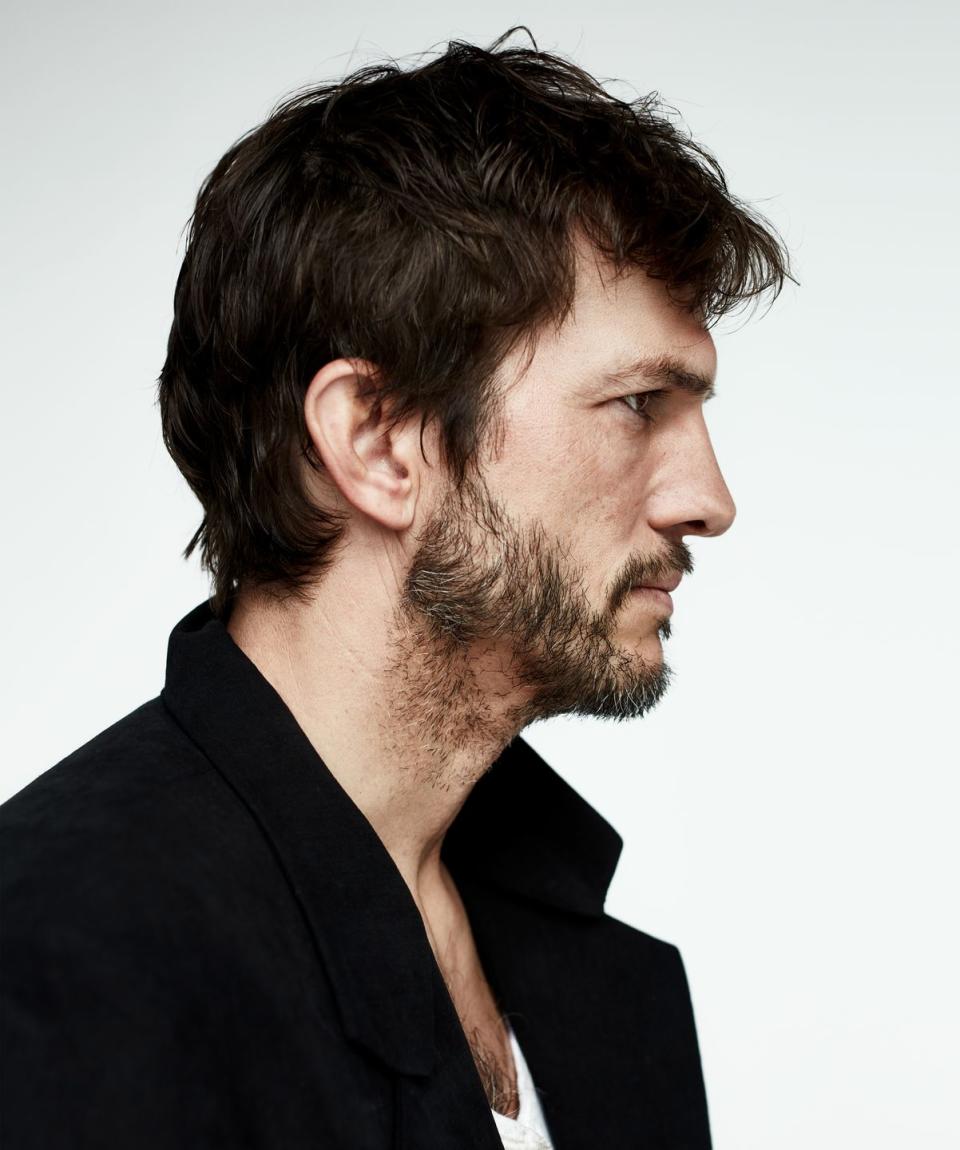
“He loves his family so deeply and really is such an incredible dad who shows up every day for his kids,” says Witherspoon. “There is no pretense. He is just very comfortable in his own skin. And did I mention he is hysterically funny?”
Playing cross-country best friends of twenty years, Kutcher and Witherspoon share only a few scenes together physically, but they found a way to connect before filming by sending each other daily videos. “We would talk about everything from our favorite football teams, stupid things our dogs did, what we were making for dinner, [to] how we felt about life in general,” recalls Witherspoon. They even started a two-person book club, reading When Breath Becomes Air at the same time. The bond has lasted beyond filming. During our conversation, Kutcher mentions he and Witherspoon spoke just a few days prior. “Just checking in,” he explains.
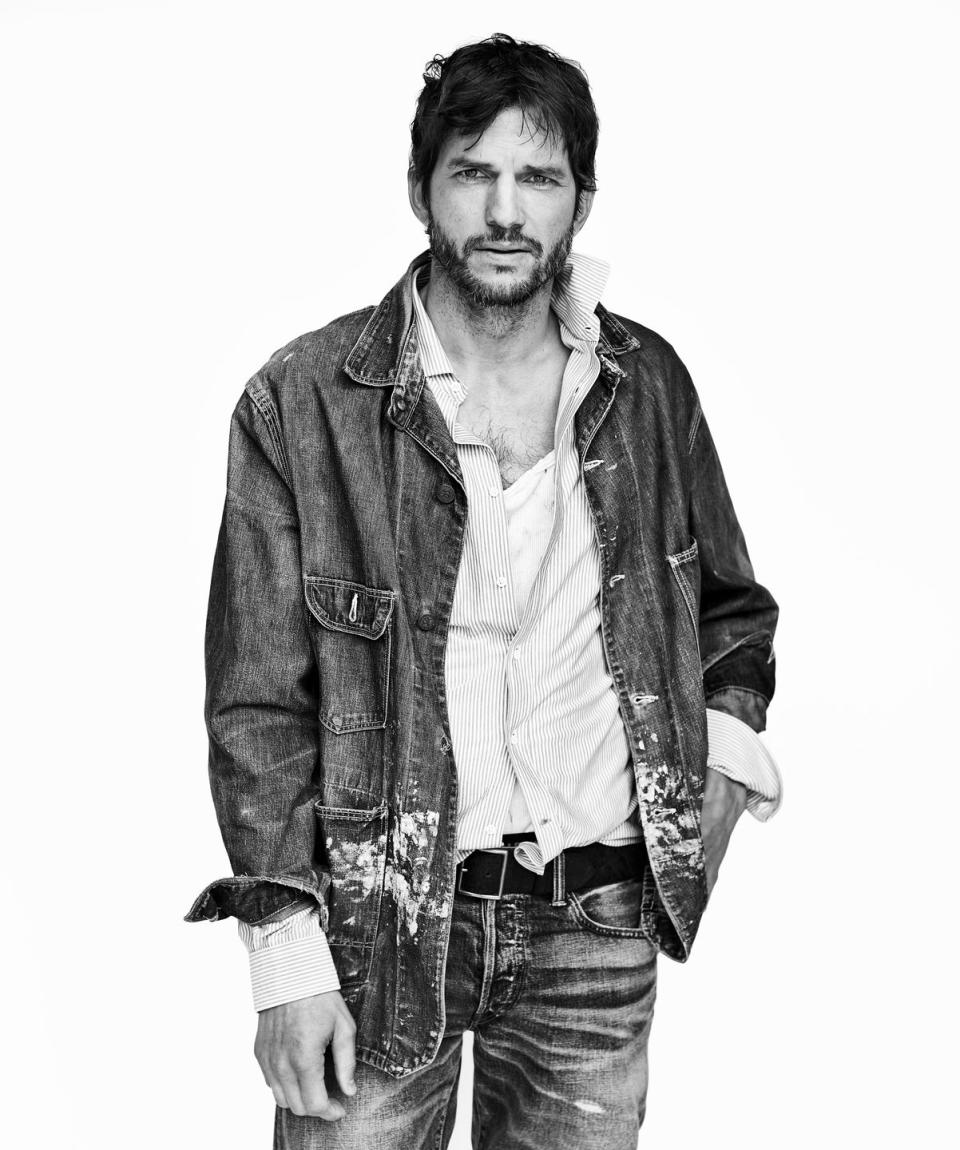
There’s another 2023 project, this one he wasn’t allowed to turn down: That ’90s Show. Kunis wouldn’t take no for an answer. As he recalls, “[She] goes, ‘You know, we owe our entire careers to this show. It doesn’t matter what the script is, we’re doing it.’” He wouldn’t have dared miss it anyway.
Talk to Kutcher long enough and you’ll realize that every character in his life, for the most part, is a recurring one. Comedian Dax Shepard was Kutcher’s first-season costar on Punk’d; Kutcher, in turn, was a guest on the first episode of Shepard’s now wildly successful podcast, Armchair Expert. (Shepard is also, Kutcher tells me, the first person he called when he was considering getting a vasectomy, looking for guidance.) Novak took over duties in season 2 of the MTV show and then, fifteen-some years later, Novak cast Kutcher in Vengeance. He’s had the same manager for twenty-six years. He’s still on a group chat with his college buddies. Hell, he’s married to one of his first costars.
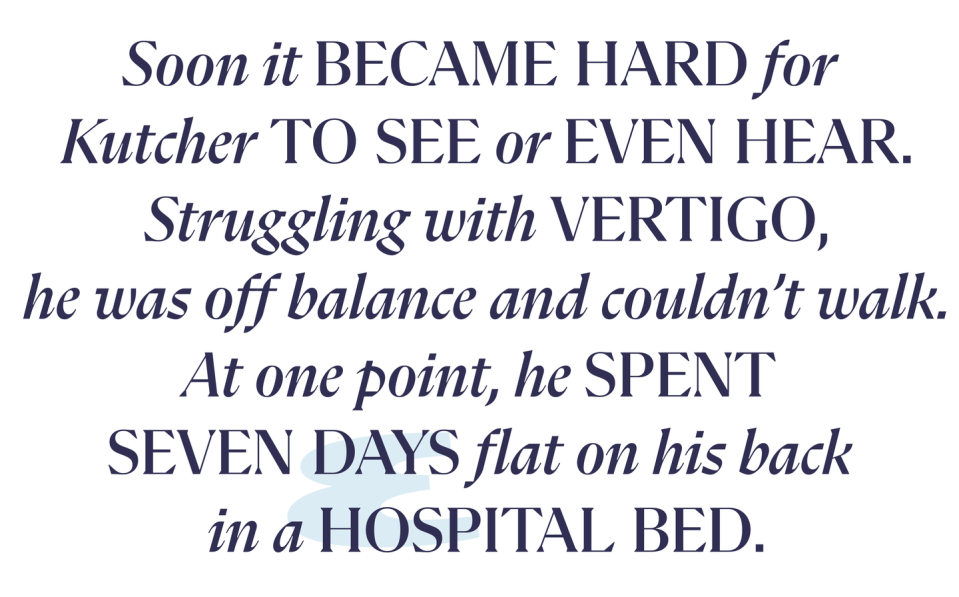
“I feel so lucky,” he says. “And when you feel that lucky and fortunate and you have some self-awareness, you realize you didn’t do it on your own. I didn’t do any of this on my own.”
Kutcher has stayed in touch with most of his ’70s Show costars. And almost all of them—Topher Grace, Laura Prepon, Debra Jo Rupp, and Kurtwood Smith, as well as Kunis and Valderrama—returned for the reboot. But one familiar face to fans of the original series won’t be back: Danny Masterson.
In June 2020, Masterson was charged with three counts of rape from three separate, alleged incidents between 2001 and 2003. His trial began in the second half of last year, and in December the judge declared a mistrial when the jury remained deadlocked after deliberations. He will now face a retrial.
Back in the day on That ’70s Show, Kutcher says Masterson was the leader of the young talent. He’d been in the industry for a while. Knew reviews and ratings like the ones they were getting didn’t happen often. As Kutcher recalls, “He’s like, ‘One fucking rule: Don’t do anything fucking stupid and fuck this up. Because if you fuck it up, you fuck it up for everybody.’” He kept the cast in line. Off drugs and away from bad decisions.
Masterson’s legal battle is hard for Kutcher to watch. Even after Kutcher left the show, Masterson remained a mentor of his. And when the rape accusations were first made public in 2017, Masterson was costarring with Kutcher in The Ranch, a Netflix sitcom that ran from 2016 to 2020. (Netflix soon wrote Masterson’s character off and fired him.) He and Kutcher remain in touch. Kutcher speaks to Masterson’s brother often. He says he thinks about Masterson’s child and how the Internet lives forever. “Someday, his kid is going to read about this,” says Kutcher. At the same time, Kutcher is an advocate for those who’ve been or are being abused. “I wholesale feel for anybody who feels like they were violated in any way.”
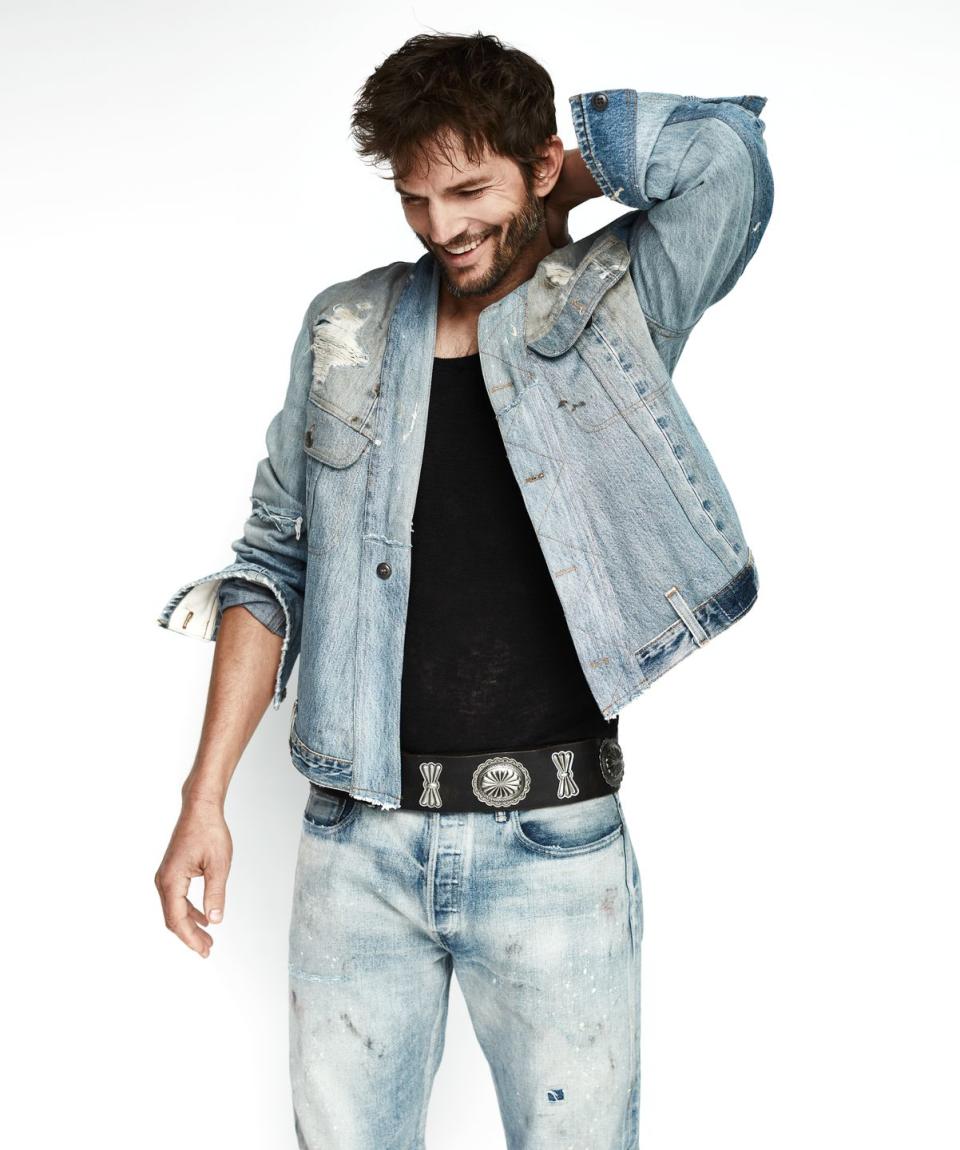
What Kutcher wants, he says, is for Masterson “to be found innocent of the charges brought against him.” Which is not, crucially, the same as Kutcher wanting his friend to get off the hook. He wants this man who was an example of how to handle yourself at a crucial time in his own life to actually be that example. To be innocent.
“Ultimately, I can’t know,” says Kutcher of what the answer is or should be in this moment. “I’m not the judge. I’m not the jury. I’m not the DA. I’m not the victim. And I’m not the accused. And so, in that case, I don’t have a space to comment.” He pauses. “I just don’t know.”
A year after Kutcher’s split from Moore, Kutcher and Kunis began dating. Kutcher, then thirty-three, was on the mend, getting over not just his ex but also himself. Kunis confirmed his suspicions that something had gone awry: “You were an asshole,” she told him. It sounded harsher coming from her, his longtime friend. “Was I…?” Kutcher recalls asking.
She didn’t blink: “Yeah, you were an asshole for a good two years.”
He took the punch. Worked on himself. Fell in love. Their first child, a daughter, arrived in 2014. And in 2015, on the Fourth of July, the two got married. A son followed in 2016. “The thing about Mila that made our relationship accelerate was that I had always admired her,” says Kutcher. “Her talents, her skills, her gifts. But I knew that she didn’t need me. And she knew that I didn’t need her.”
There was also this fact: “We already knew all of each other’s dirt.”
And this one: “My wife is so much cooler than me.”
One day in 2019, Kutcher woke up with a migraine. A crazy migraine. It was notable, but Kutcher had been getting migraines his whole life. This one he couldn’t sleep off, though. Couldn’t treat. For two weeks it only got worse. “Something’s not right,” Kunis told him. They sought help. A diagnosis didn’t come quickly. And soon it became hard for Kutcher to see or even hear. Struggling with vertigo, he was off-balance and couldn’t walk. At one point, Kutcher spent seven days flat on his back in a hospital bed. Eventually, he was diagnosed with vasculitis, a rare autoimmune disorder.
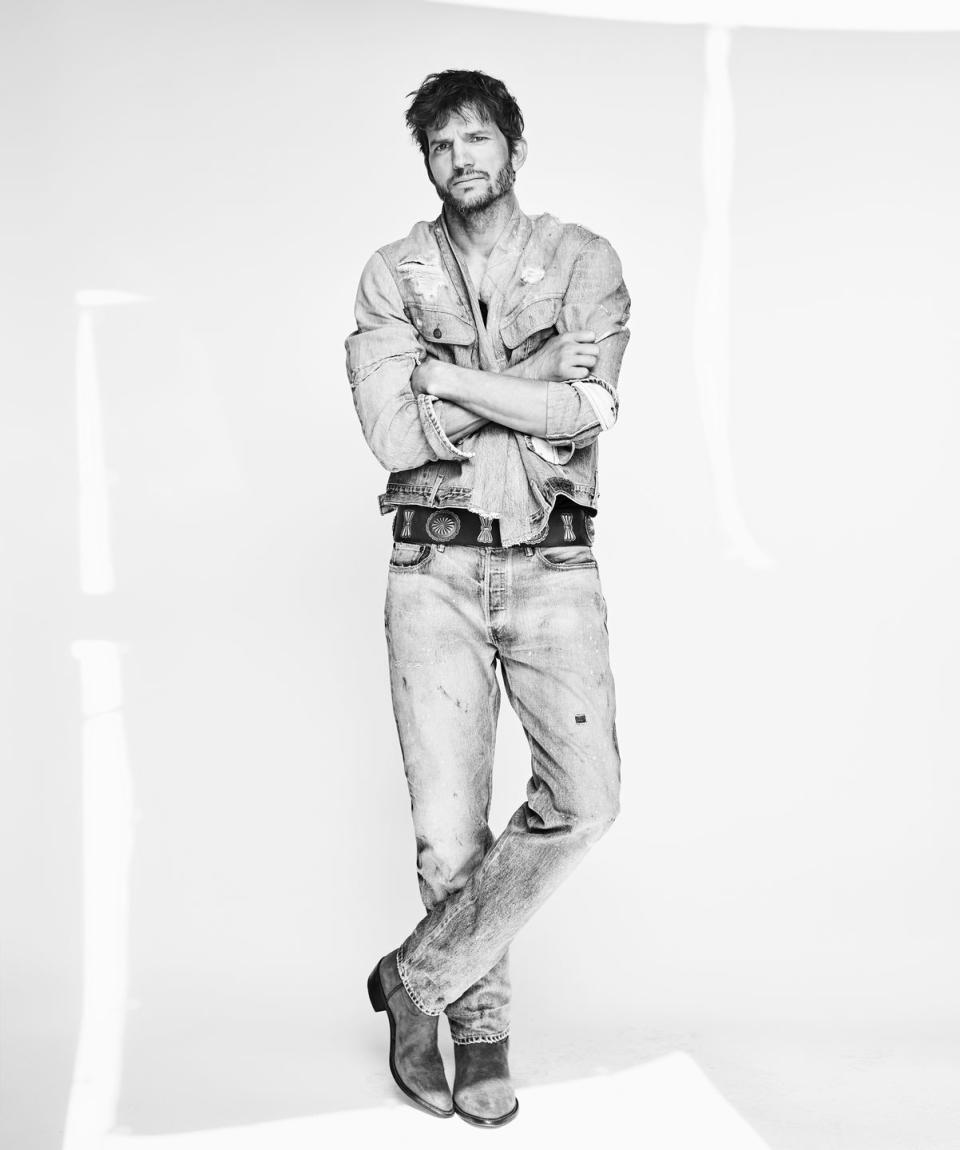
During treatment, doctors told him that the sooner he did the things he used to be able to do, the higher the chance of a full recovery. Exercise would help—but how can you exercise when you can’t even walk? Kutcher tried, failed, and tried and failed again. And then he got mad. He wanted to get up and play with his kids.
After a month of being able to do “jack shit”—or, nothing at all—he began to move. He began to exercise. He willed progress. “I’d just try to do it until I could fucking do it.” It took him nearly a year to recover fully.
Kutcher never planned to make his diagnosis public. He spent much of the pandemic in rehab and, with the world largely open again, he wanted to spend all of last year just feeling alive. Went to Antarctica. Climbed a mountain at the South Pole. Learned how to ski. Signed up for the marathon. “It was about testing my mettle,” he says. He also went on an adventure with Bear Grylls.
While filming the National Geographic program Running Wild with Bear Grylls: The Challenge, Kutcher says he had what he thought was an off-the-record conversation with the host. He disclosed his health information and, while he knew there were cameras present, he asked that Grylls not use it. When the episode aired in August 2022, with his remarks, news of Kutcher's health scare spread. (Esquire requested a comment from Grylls via a spokesperson for National Geographic but we did not receive a response.)
Kutcher is not mad about it now. Was he mad? Maybe. He won’t say. He knew it was a risk. He accepts this. “At the end of the day, I have to look at it and be like, ‘All right, well, maybe it needed to come out.’ Maybe somebody will see this and go, ‘Oh this is helpful for me in some way knowing this…’” He’s unconvinced. He shrugs. “Hopefully that happens.”
Sympathy is not something Ashton Kutcher is comfortable with. He feared the questions that would follow the reveal, one in particular: Are you okay? “Like, pass,” he says of how he’d prefer to respond. “I ran a fucking marathon. Are you okay? Everybody goes through shit.”
Maybe it’s his Midwest roots. You don’t air your dirty laundry where he comes from, says Kutcher. But he also knows people who’ve suffered. His twin brother, Michael, at age thirteen, needed a lifesaving heart transplant. Other medical complications would follow in ensuing years. But he refused pity.
Kutcher didn’t learn a lesson from that in real time, but a decade later—“somewhere around that asshole period,” as Kutcher refers to it—Michael intervened one day, saying to his twin, “Every time you feel sorry for me, you make me less. This is the only life I have ever known. It’s the only experience I am ever going to have. Don’t make it less.”
It was profoundly humbling. And it fundamentally changed the way Kutcher views life. As he says, “Whatever you’re going through, you have two choices: You accept this as part of the experience, or you reject it as part of the experience. And the minute you start rejecting it as a part of the experience, you start questioning reality. ‘This is not my problem. This is not my thing.’ Well, what reality are you living in if this is not yours?”
These days, Kutcher’s life is pretty quiet. Wakes up around 5:30. Works out. Cooks the kids’ breakfast alongside his wife. After, they pack up school lunches and drive their eight- and six-year-old to school. Then Kutcher and Kunis each disappear into their offices—both at home—to work.
The majority of Kutcher’s daily working life is consumed by his investment fund. Much has been made of Kutcher as an investor. And in fairness, there was nothing obvious about the evolution from Kelso to VC shark. Unless, of course, you knew Kutcher at all.
His friend and fellow venture investor Josh Kushner vouches for Kutcher’s skill at assessing opportunities. “Some are surprised that Ashton is good at this, because he has another job that is completely different,” says Kushner. “The reason why he is an exceptional investor is no different than why other people are. He is deeply creative and an extraordinary product thinker.”
Kutcher’s goal in the VC space is simple: as he puts it, “to find cool shit and solve big problems.” The problems change—that’s what keeps it interesting, even as the market gets crowded and good deals get harder to find. Right now, Kutcher has two big themes on his mind: sustainability and the paradigm-shifting potential of AI. Finding the right innovators and disrupters to bet on isn’t easy, but Kutcher’s been right before. On a grand scale, too. And not just with Uber and Airbnb. Spotify. Pinterest. Warby Parker. Those, too.
When the final school bell rings, Kutcher and Kunis are there for pickup. If it’s a gymnastics day, Kunis is on duty. If it’s Cub Scouts, all Kutcher. The whole family heads to tae kwon do. They cook dinner and eat as a family. And when the kids are finally in bed, Kunis and Kutcher toss up a hallelujah and hit the sack themselves. They’ll do it all again tomorrow.
As a couple, they’re social, but Kutcher’s partying days, which mainly involved weed and alcohol, are a distant memory. “I haven’t done a drug in ten years,” he offers before quickly backtracking a little. There was that THC mint he took in Italy at a friend’s wedding. “That shit did not go well.”
Kutcher had just had a vasectomy, and as soon as the high hit, he was convinced he’d lost feeling below the waist. He panicked. Wanted to go back to his room—except, where the hell is the room? He made Kunis show him. Things didn’t improve. Once in bed, Kutcher was doing some very bad math. He convinced himself they were going broke. He was thinking: “We can’t even afford to be here right now!”
“The next day, I realized I had moved the decimal point,” he says. That was the end of Kutcher and weed. If he misses it at all, he loves this punchline more: “The minute weed became legal in California, I got banned from doing it.”
Kunis and Kutcher have, for the most part, maintained a sense of privacy during their marriage. They didn’t walk a red carpet together until 2017 and haven’t walked many as a couple in the years since. Have never posted and will never post photos of their kids online. And they keep their professional lives separate. It’s worked, save for a prolonged moment of media frenzy around the release of Moore’s memoir in 2019.
That was not a happy moment for Kutcher. “I was fucking pissed,” he admits, speaking about the book’s arrival. “I’d finally gotten to a place where the press had really laid off me and Mila, and my life and my family. And then the next day, [the paparazzi] are at my kids’ school.” He stops. Doesn’t want to complain. How can he? Look at his life. It’s all good. No hard feelings, he says. “I don’t want to open anything up in that realm.”
Can you remember the last time you saw Ashton Kutcher cry? Of course you can. He’s done it in tons of his films. There’s that one scene in which his character goes for it. Tells the girl how he feels. It gets you, too, if you’re honest. Most times, anyway. Kutcher has perfected the art of the just-glossy-enough pleading, vulnerable eyes.
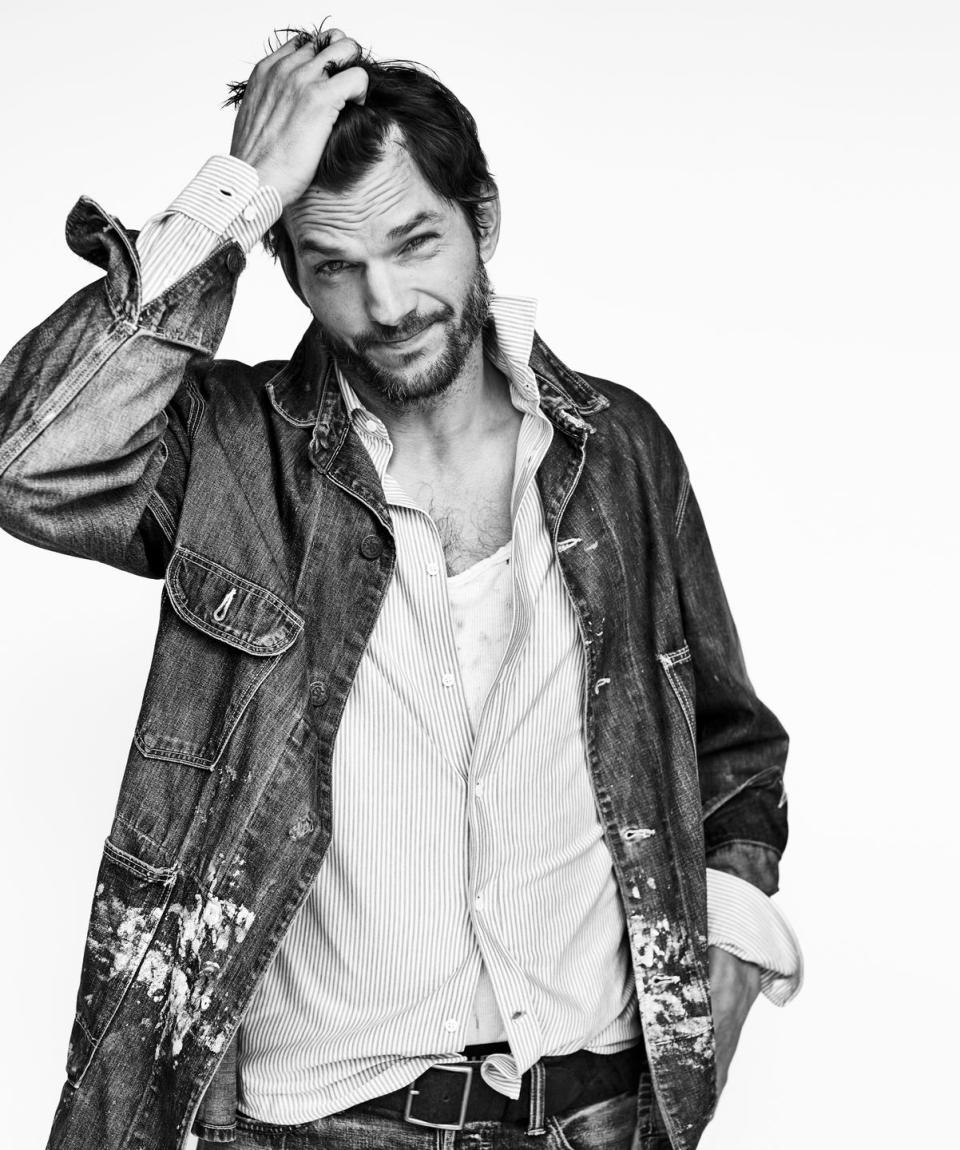
I’m looking at them right now on Zoom. It’s the second time Kutcher and I speak, this time with a few thousand miles between us. Except right now, the emotion on display is not an act. Wearing a dark hoodie, hair wet from a shower, Kutcher is overcome. We’re speaking about Thorn, which is, fundamentally, a tech company. It creates tools that can quickly identify explicit, illegal content featuring minors that it then gives to both law enforcement and businesses to fight the exploitation and sexual trafficking of children.
And this is when a man who’s made a fortune betting on tech companies—embracing tech companies—gets mad as hell at Big Tech. Because right now, he says tech giants like Facebook, Google, and Apple are ignoring a huge problem under the guise of being pro-privacy. All marketing, says Kutcher. The real priority is adding customers and driving sales. So despite the fact that tools to easily find child porn exist, they go underutilized. “They’re fucking scared that consumers are going to turn off their product,” he says.
Kutcher has testified on Capitol Hill, though he hasn’t found much help in D.C. “You know why lawmakers don’t want to do anything with that?” he asks by way of explanation. “Because kids can’t fucking vote.” He can’t believe it. “What the fuck are we doing? Who are we, as people, to not make this issue a priority?” His voice cracks.
With his own kids, Kutcher is highly focused on being the best parent he can be. He and Kunis read a lot of books on the subject. Recently they found inspiration in Dr. Becky’s Good Inside. And they think deeply about how to raise “good decision makers.”
They also, crucially, want to have fun. Kutcher was raised Catholic but, famously, studied Judaism throughout his first marriage. Kunis, born in Ukraine, is Jewish, though not particularly religious. “So we do Shabbat,” Kutcher begins, “and we do Hannukah…but then we also do Christmas.” He’s smiling now. “And then we do Passover, but we also do Easter.”
Holidays are fun. But it’s more than that. “We have to celebrate,” says Kutcher. With a life like this, after all, how can you not?
Story: Madison Vain
Photos: Billy Kidd
Styling: Mark Holmes
Grooming: Mira Chai
Creative Direction: Nick Sullivan
Design Direction: Rockwell Harwood
Visuals Direction: Justin O’Neill
Executive Director, Entertainment: Randi Peck
You Might Also Like
